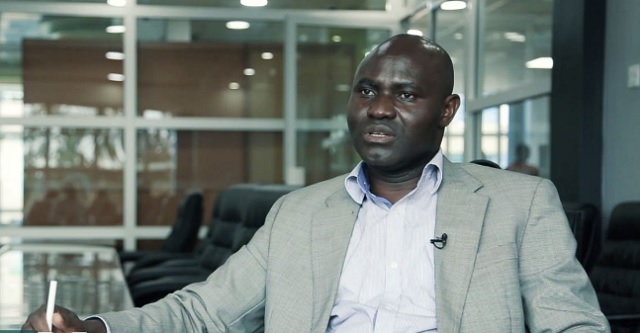
Investment agency is hunting for a new ED as it waits for IGG report on restructuring
Kampala, Uganda | IAN KATUSIIME | After making a detailed presentation about investment licensing at a breakfast meeting, Basil Ajer, the Acting Executive Director of Uganda Investment Authority (UIA), held his breath and said he intended to clear the air about something.
“I want to assure you, we are stable and working well. The resignation letter is normal,” he said on Nov. 7 at Kampala Serena Hotel.
Ajer handed in his resignation after four months as acting head of UIA but perhaps what was not normal was the six-month notice he gave to the board and the line minister.
Ajer assumed his current role in June when Jolly Kaguhangire, his predecessor, was ousted from office by the board of directors due to abuse of office. The concern of most observers is the news that continually surrounds the investment agency as opposed to why it was created-attracting investors.
A source at UIA told The Independent that Ajer had got another job in one of the ministries meaning that the board will have to spend more time and resources as they hunt for a new executive director.
UIA Board Chairman Emely Kugonza told The Independent during the meeting that when the restructuring process was halted by the Inspector General of Government, Irene Mulyagonja, it left the agency in sort of a limbo.
“We had started the recruitment process then the whistleblower came in. We had recruited the directors; we are at the level of appointment.”
The current directors were told to re-apply and as they wait for their fate it is not yet clear, who will stay and who will be sent packing.
However, sources at UIA also say the five directors were given short term contracts when the restructuring process was afoot.
As a result, the directors at UIA are in acting capacity but Kugonza is defiant about the situation.
“We will manage the situation as we wait for the IGG report.”
He says UIA directors will be in substantive capacity as soon as possible.
The five are Prossy Kikabi (Investment Facilitation and Aftercare) Joseph Kiggundu (One Stop Centre), Sheila Mugyenzi (Investment Promotion), Richard Tebandeke (Finance and Administration), and Eria Kaweireku (SME).
Kaguhangire tenure
From the time Kaguhangire took over in early 2017, UIA has been rocked by one saga after another. She was accused of hiring auxiliary staff outside the scope of her mandate.
According to sources at UIA, these positions were previously non-existent but she personally hired them and paid them over and above what they were supposed to earn. She was also accused of spending excessively on travel.
According to inside sources, Kaguhangire clashed with two directors Hamza Galiwango, then in charge of land division and Kiggundu.
Kaguhangire’s relationship with Galiwango is said to have been so bitter that at one point, she instigated the arrest of Galiwango by operatives of Chieftaincy of Military Intelligence (CMI), and the latter spent three days in custody. Galiwango has since left UIA.
On Oct. 26, the Kugonza-led UIA board formally terminated Kaguhangire’s contract after a tenuous interdiction period of four months. According to a letter by the board, she was fired based on the findings of an independent investigation conducted by a six-member committee into the accusations levelled against her. Kaguhangire was facing accusations of insubordination and corruption.
New Middle East investors
Meanwhile in his presentation, Ajer revealed that the second top most investments in Uganda for the months of July, August and September came from Lebanon, followed by United Arab Emirates. The top most investors were Ugandans.
Investors from the two Middle Eastern countries eclipsed those from India and China who came fourth and fifth in the first quarter of the FY2018/2019.
Ugandans invested US$82million in their country while Lebanon sunk a total of US$65million with the arrival of a financial services company.
UAE investors have invested US$51million in the areas of agricultural production, value addition and agro-processing. India and China, the traditional investment behemoths in Uganda brought in US$12million and US$5million respectively.
 The Independent Uganda: You get the Truth we Pay the Price
The Independent Uganda: You get the Truth we Pay the Price



